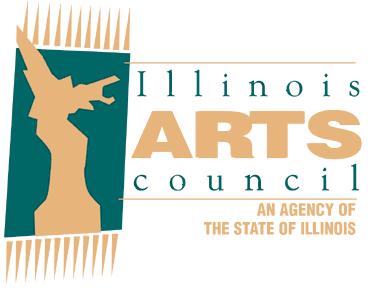THE
NORTH SHORE CHORAL SOCIETY
PROGRAM
NOTES FOR THE MARCH 4, 2007, CONCERT
by
Donald Draganski
The
eldest child of a schoolmaster and organist, Anton Bruckner was born
in 1824 in Ansfelden, a small village near Linz in Austria. He
received his early musical training from his parents, and by the
age of ten he was already able to fill in for his father at church
services. During his father’s final illness, Anton was
obliged to take up the older Bruckner’s duties, in both the
classroom and in the choir loft. Upon his father’s death,
the thirteen-year-old boy was sent to the Augustinian monastery of
St. Florian to join the choir and to continue his education, including
studies in organ, violin and music theory.
Suffering
the same fate that Haydn had endured ninety years earlier, Bruckner
was dismissed when his voice broke, and he was no longer able to
sing in the choir. He spent the next five years as a schoolteacher
in various small villages near his hometown. The extremely
modest salary obliged Bruckner to supplement his meager income by
working as a farm laborer. In 1845 he returned to St. Florian, where
he remained for the next ten years as a teacher. His musical
career advanced another step when he was appointed cathedral organist
in Linz, a position he held for thirteen years. Finally, after
a brief stay in a sanatorium owing to a physical and mental breakdown,
Bruckner assumed the dual post of professor of harmony and organ
at the Vienna Conservatory, and organist at the Imperial Chapel. His
subsequent fame rested largely on his orchestral compositions, most
notably his nine numbered symphonies. Bruckner never married, but
he continued to support his four siblings and their families for
the remainder of his life. He continued to live in Vienna,
composing and teaching, until his death in 1896.
Bruckner’s
output of sacred music comprises nine masses and well over forty
settings on various other liturgical texts. During the nineteenth
century the Catholic Church, reacting against the large symphonic
masses of the day, initiated a movement to foster a return to more
modest settings that would enhance, rather than distract from, the
service. Of the three major masses that Bruckner composed in
his maturity, the D minor and F minor Masses fall into the grandiose
category. His E minor Mass, presented today, is a much more
modest setting that evidently satisfied the Church’s newly
enforced standards. It is, in fact, a very successful synthesis
of sixteenth-century counterpoint with nineteenth-century harmonic
practices – a musical marriage, as it were, of Renaissance
and Romantic sensibilities. The Sanctus movement pays homage
to Palestrina by quoting a theme from one of that master’s
Masses. Bruckner composed his E minor Mass in 1866 and scored
it for an eight-part chorus with an accompaniment of fifteen wind
instruments.
***
Randall
Thompson has been called the Dean of American Choral Composers, not
merely owing to his patriarchal life span – he died in 1984
in his eighty-fifth year – but in recognition of the consistently
high quality of his compositions. Gracefully shaped melodic
lines combined with the great care he took in preserving the natural
rhythm of the text are the distinguishing marks in all his vocal
writing. A graduate of Harvard University, Thompson had, during
his long career as teacher, held faculty positions at the University
of California at Berkeley, the Curtis Institute, the University of
Virginia, Princeton University, and finally at Harvard University,
where he taught until his retirement from teaching in 1965.
Thompson’s Frostiana, subtitled “Seven
Country Songs,” was commissioned by the town of Amherst, Massachusetts,
on the occasion of the two-hundredth anniversary of its founding. The
entire set was first performed in Amherst in 1959 by a chorus consisting
of singers of all denominations drawn from churches throughout the
township. The composer conducted, and the poet, Robert Frost,
was present for the occasion.
***
Ron
Nelson, born in Joliet, Illinois, in 1929, was already composing
by the age of six. He is a graduate of the Eastman School of
Music, where he studied with Howard Hanson and Bernard Rogers. Subsequent
post-graduate studies took him to L’Ecole Normale de Musique
in Paris. He joined the faculty of Brown University in 1956,
where he taught until his retirement in 1993. He currently
resides in Scottsdale, Arizona.
Wind
bands owe a considerable debt to Nelson for the many fine compositions
he has contributed to their repertoire. His many awards include a
Fulbright Award, a Ford Foundation Fellowship, NEA grants, and several
ASCAP awards. He has composed and published well over ninety
works for orchestra, chorus, and band, as well as several film scores.
Three
Settings of the Moon, set to the poetry of Thomas E. Ahlburn,
was commissioned by the Classic Children’s Chorale of Evanston
for its 1983 tour of England and Wales. The three sections – “The
Moon Does Not Sleep,” “Autumn Lullaby for the Moon,” and “Ask
the Moon” – are scored for treble voices, accompanied
by, as Mr. Nelson describes them, “relatively inexpensive
(or easily borrowed) instruments, most of which may be played by
members of the chorus.”
Home | Concerts
| Tickets | Sponsors
| Members | New
Members | About NSCS | Contact
us
Past Performances


